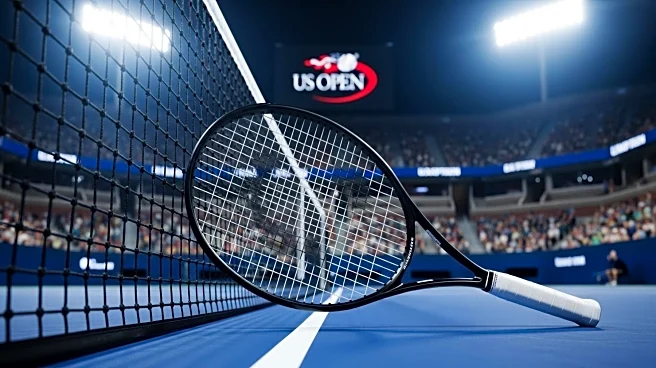What's Happening?
During a tense moment at the US Open, Stefanos Tsitsipas confronted his opponent, Daniel Altmaier, over the use of an underhand serve. Tsitsipas expressed his displeasure during the post-match handshake, suggesting that Altmaier's tactic was unsportsmanlike. The match, which Altmaier won in five sets, was marked by the controversial serve, a legal but rarely used tactic. Altmaier's victory advanced him to the third round, where he will face Alex de Minaur. The incident highlights the competitive nature of the tournament and the strategic choices players make.
Why It's Important?
The confrontation between Tsitsipas and Altmaier underscores the intense competition and psychological tactics in professional tennis. The use of an underhand serve, while legal, is often seen as unconventional and can provoke strong reactions from opponents. Such incidents can influence player dynamics and fan perceptions, adding drama to the sport. The event also reflects broader discussions about sportsmanship and the evolving strategies in tennis, impacting how players prepare for matches and interact on the court.
What's Next?
Altmaier's progression to the third round presents an opportunity for him to further demonstrate his skills against higher-ranked opponents. Tsitsipas may need to focus on his upcoming matches and manage any lingering frustrations from the incident. The US Open will continue to showcase high-stakes matches, with players employing various tactics to gain an edge. Fans and commentators will likely keep an eye on player interactions and strategic choices as the tournament progresses.
Beyond the Headlines
The incident raises questions about the role of unconventional tactics in sports and their impact on player relationships. It highlights the balance between competitive strategy and sportsmanship, prompting discussions about the rules and etiquette in tennis. The event may influence how players approach psychological aspects of the game, considering both the potential advantages and the ethical implications of their choices.









